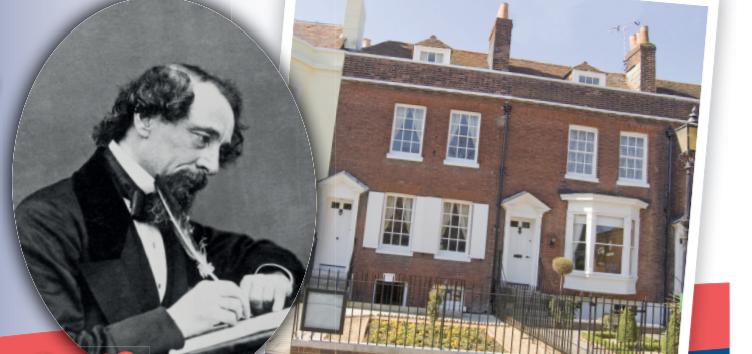Unit 7
Lesson 1
SB page 58
Literature
Before you begin
1 What do you know about Charles Dickens? Can you name any of his books?

Answers
Students’ own answers
2 DW Read the words in the box. Which words refer to types of writers? Check the meaning of any words you don’t know in the Activity Book glossary or in a dictionary.
|
author clerk journalist lawyer narrator novelist playwright poet |
Answers
journalist, novelist, author, playwright, poet
3 Read and listen to the text and check your answers to exercise 1.
Answer
Charles Dickens lived in England in the 19th century. He was a very influential author who grew up in a poor family. He wrote mainly about cruelty to children. Some of his books are: Great Expectations, David Copperfield, The Pickwick Papers, Oliver Twist and Dombey and Son
Charles Dickens
Charles Dickens was born on 7th February, 1812, in Portsmouth, on the southern coast of England.
He was a quiet boy, who loved reading. When he spoke later of his childhood, he said that he remembered listening to children playing outside, as he sat indoors. He always preferred reading to playing with other children.
At the age of 12, life for his family changed very suddenly. His father had financial problems, so Charles was no longer able to attend school regularly, and he had to work at a factory. The loneliness he felt there was an important influence on his writing, especially in his books Great Expectations and David Copperfield.
When he was 14, Charles stopped going to school altogether and started working as a clerk in a lawyer’s office in London. He didn’t like working there.
Luckily, things changed for him again. Charles had always wanted to be a writer, and he became a very respected journalist. He began to write short pieces for publication in the newspaper. In 1836, a series of pieces called The Pickwick Papers appeared monthly in the newspaper and were very popular. Dickens was a famous author by then.
Throughout his life, Dickens enjoyed travelling. He travelled to many countries, writing novels and giving talks about the cruelty of slavery. Novels such as Oliver Twist and Dombey and Son highlighted the cruel treatment of people, especially children, and child labour in the 19th century.
He died on 8th June, 1870, at the age of 58.
Comprehension
4 Read and listen to the text again and answer the questions.
1 Why did Charles Dickens have to stop going to school?
He had to stop going to school because he had to work.
2 How did Dickens’ experiences of work influence his writing?
3 What was his first successful published work?
4 What issues did many of his novels highlight?
5 What do you think are the moral problems with using children as labour?
6 Do you think a novel that addresses a social problem would contribute to diminishing these problems? If so, how? If not, why not?
Answers
1 He had to stop going to school because he had to work.
2 He felt lonely at work and this influenced his writing.
3 The Pickwick Papers was his first successful work.
4 Many of his novels highlighted the issues of cruelty to children and child labour.
5 Suggested answer: I think children should not be used as labour because they need to be nourished and looked after until they are strong enough to do the tough manual jobs that they are expected to do as children. Additionally, they have a right to be children, and play and learn.
6 Suggested answer: I think a novel about these social problems might make people more aware of them, but I think it might take a very long time for people to start to take action, because it is not urgent enough. Also, people might just think it is fiction, so there is no point in getting worried about the situation.
Unit 7
Activity Book page 40
Literature
Vocabulary
Complete the following paragraph with the words from the box. One word is not needed.
|
writer poet journalist author novelist narrator playwright |
If you write any kind of published material, you are an (1) __________. If you specifically write for a newspaper or a magazine, you are a (2) ____________. However, if you write fictitious narrative books, you are a (3) ___________. On the other hand, if you write shorter, rhyming pieces, you are a (4) ___________. If you write dialogue which will be performed by actors in a theatre, you are a (5) ____________. If you like writing for pleasure, but you’ve never had anything published, you might describe yourself as a (6) __________.
Page 40, exercise 1
1 author
2 journalist
3 novelist
4 poet
5 playwright
6 writer